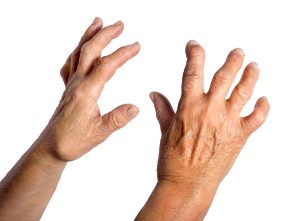The Journal of the American College of Nutrition published an article in January that quercetin helps rheumatoid arthritis patients.
Specifically researchers performed a randomized, double blind clinical trial on 50 women with rheumatoid arthritis (RA). The women received 500 mg of quercetin once daily for 8 weeks.
The patients had to give blood samples before and after the trial. Erythrocyte sedimentation rate and tumor necrosis factor-alpha were part of the tests as a measure of inflammation.
In addition to the tests an examination by physicians gave further relevant information. These determined the number of swollen joints and the tender points. Health questionnaires quantitated the quality of life and the degree of disability.
At the end of the trial women who were taking quercetin complained of less morning stiffness. They also had less morning joint pains and pain following activity, when compared to the pretreatment levels. The placebo group showed no significant changes in any of these parameters.
The researchers concluded that supplementation with 500 mg of quercetin daily over 8 weeks showed significant improvements. The improvements were with regard to joint mobility, pain and tumor necrosis factor-alpha as a measure of inflammation. In addition the health assessment questionnaire showed significant functional improvements.
Other evidence that Quercetin is anti-inflammatory
- In 1997 a publication from Nagoya University, Japan suggested that the bioflavonoid quercetin was anti-inflammatory. The researchers used a tissue culture model with cultured human synovial cells (lining of joints). They showed that quercetin could suppress inflammation induced by tumor necrosis factor-alpha.
- A 2014 publication from Brazil showed in rheumatoid arthritis patients that four flavonoids, one of them quercetin, were able to suppress patients’ inflammatory neutrophils by 65%. Other anti-inflammatory bioflavonoids did not show the same effects as quercetin, and they recommended using quercetin in the treatment of RA patients.
Conclusion
Quercetin is a useful bioflavonoid. Taking 500 mg once daily is beneficial for everyone as a general supplement. It is clear that it inhibits inflammation. But for rheumatoid arthritis (RA) patients it is particularly important to take quercetin as it has specific inhibitory actions for inflammatory neutrophils and inflammatory tumor necrosis factor-alpha, an inflammatory cytokine. RA patients suffer from chronic inflammation in their joints. The first publication reviewed here showed that quercetin helps in that regard. Quercetin can also be combined with other medications that RA patients may be taking. The study from Brazil showed that the other useful functions of the neutrophils were not affected, despite quercetin being a very effective anti-inflammatory. Frequently medications have undesirable side effects, but this supplement can be beneficial to patients without any side effects.







